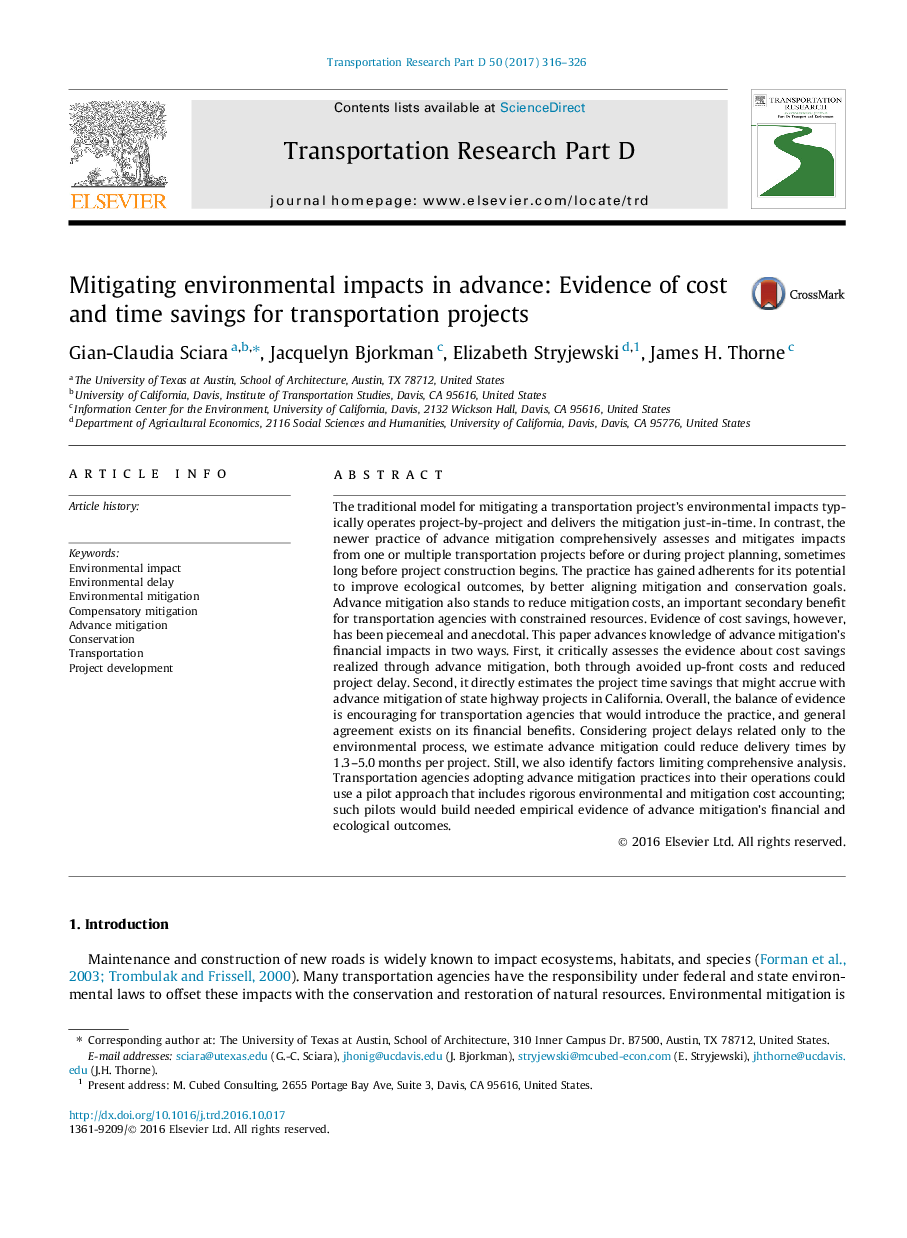ترجمه فارسی عنوان مقاله
کاهش اثرات زیست محیطی در پیشبرد: شواهد صرفه جویی در وقت و هزینه برای پروژه های حمل و نقل
عنوان انگلیسی
Mitigating environmental impacts in advance: Evidence of cost and time savings for transportation projects
| کد مقاله | سال انتشار | تعداد صفحات مقاله انگلیسی |
|---|---|---|
| 149344 | 2017 | 11 صفحه PDF |
منبع

Publisher : Elsevier - Science Direct (الزویر - ساینس دایرکت)
Journal : Transportation Research Part D: Transport and Environment, Volume 50, January 2017, Pages 316-326
ترجمه کلمات کلیدی
اثرات زیست محیطی، تأخیر محیطی، کاهش زیست محیطی، کاهش دهنده جبران کننده، کاهش سریع، حفاظت، حمل و نقل، توسعه پروژه،
کلمات کلیدی انگلیسی
Environmental impact; Environmental delay; Environmental mitigation; Compensatory mitigation; Advance mitigation; Conservation; Transportation; Project development;

